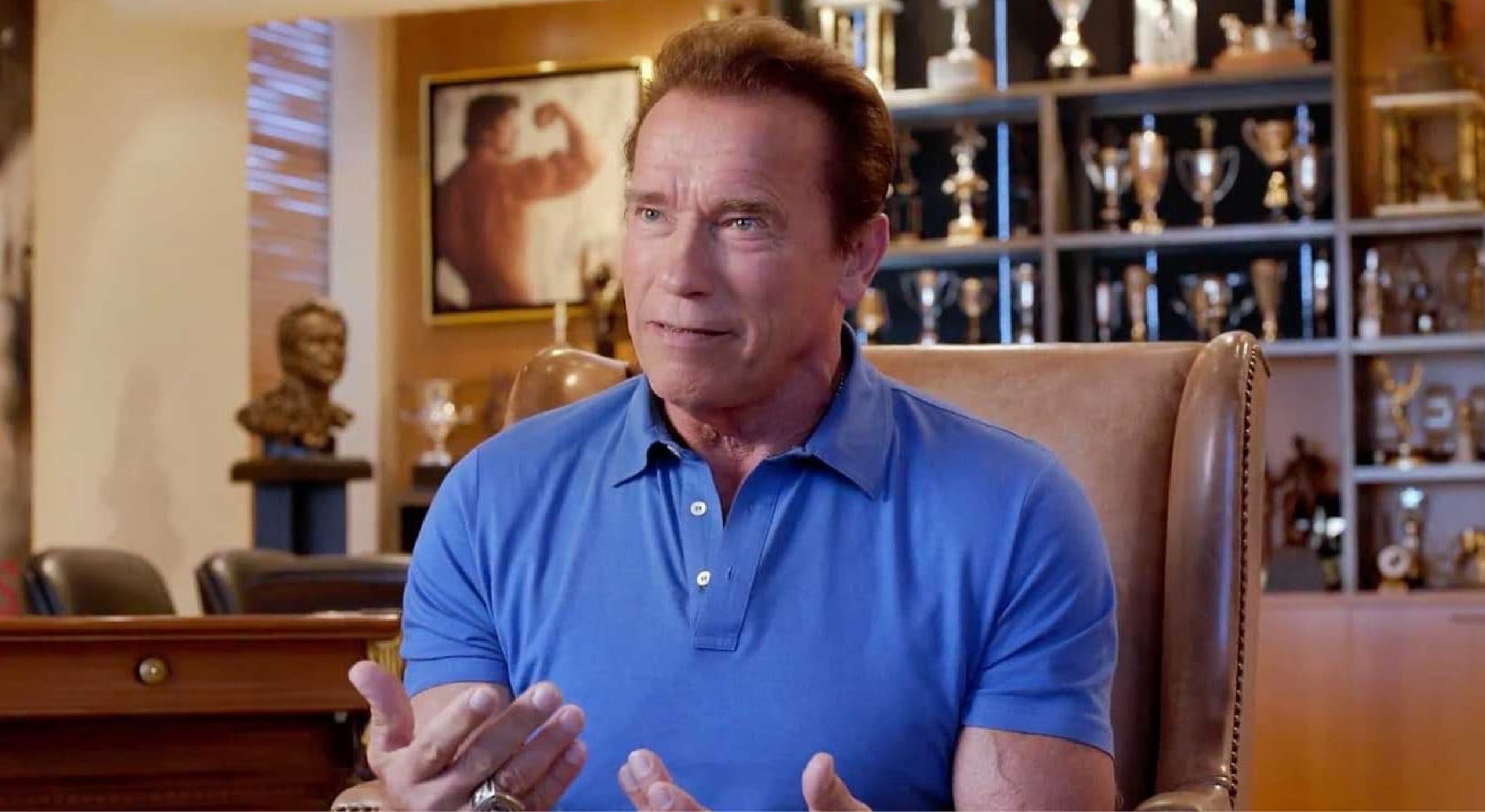The scene: a military base. Combat expert and former Ultimate Fighting Championship fighter James Wilks is wrestling with a Navy Seal in front of a large group of soldiers. In a voiceover he tells us he’s been teaching government agencies how to fight unconventionally for 15 years. The next scene: karate, followed by Wilks fighting again – this time in a cage.
With so many glistening muscles on display, you’d be forgiven for thinking this was an Arnold Schwarzenegger movie, and, in fact, he does have a small role (as well as a producer’s credit).
But this is a documentary, not about combat but veganism. It’s called The Game Changers, currently screening on Netflix. And unless you’ve been living under a large plant, you’ve probably heard of it, because its popularity has exploded, along with the vegan lifestyle.
According to Vegan Australia there are around 500,000 vegans across the country, while research from Roy Morgan indicates that that 2.5 million Australians – roughly 12 per cent of us – are vegetarian. This is up from 11 per cent in 2014. And it’s not just Australia; 25 per cent of American millennials now identify as vegan or vegetarian. No wonder The Economist magazine described 2019 as “The Year of the Vegan”.

But The Game-Changers is about to considerably widen that demographic. Deliberately macho in tone, the doco skilfully focuses on how men, especially, can benefit from a vegan diet, with plenty of science-based evidence to back it up. The interviews are mainly with male athletes, including boxers, footballers and body builders, who talk about greater muscle strength, decreased risk of heart disease – and harder erections.
Sitting there, next to my husband, watching him fall in love with the idea of a plant-based lifestyle, I basked in the warm glow of validation. See, I’ve been plant-based for the better part of 18 months. In 2017, I was diagnosed with Hashimoto’s Disease, and, after feeling tired, achey and depressed all the time, with an almost non-existent metabolism, I figured I had nothing to lose. I was already on medication, and although the blood work came back “normal” my joints still ached, and I was still tired almost every hour of the day.
I was diagnosed with Hashimoto’s Disease… and I hopped on the vegetarian bandwagon
I’d tried going low carb, but it only worsened my symptoms. So, I hopped on the bandwagon. Celery juice, fruit and vegetables, and almost nothing else. I felt silly and a little naïve – but only for the first day or so. My symptoms reduced overnight.
Few of my friends took me seriously (I fell off the wagon a few times, too). But Game Changers was presenting evidence that I’d been living a superior lifestyle. And now that it’s the most downloaded movie on iTunes, beating Toy Story 4, it feels good to be right!
So, why has it struck such a chord?
One obvious answer is our growing concern about climate change. A 2017 study found that the world’s three largest meat firms produced more emissions in 2016 than the whole of France. A vegan diet could reduce that by a third.
“Australians are increasingly concerned about their impact on the environment, particularly in light of the recent droughts and fires,” says industry analyst Jams Caldwell of market research firm IbisWorld. “Australia is the driest continent on earth, and is only expected to get drier as a result of climate change. Consumers are turning to more sustainable food options.”
And then there’s our obsession with wellness and clean eating. “Australia is experiencing a rising wellness culture, which is encouraging consumers to reduce their meat intakes, and to move to low-calorie diets,” adds Caldwell.

But it’s not just low calories driving the current plant-based movement. Discoveries (and documentaries) on the mind-gut connection have also ignited our zeal for high-fibre eating, with an emphasis on probiotics. And guess which foods have both of those?
Meanwhile, research over the last 15 years has proved that food intolerances – such as those to gluten and dairy – exist. In the 1990s we just thought people were fussy. But these intolerances are also increasing demand for plant-based products. Rates of autoimmune conditions, such as Lupus, Multiple Sclerosis, Type 1 Diabetes (and my own Hashimoto’s), have tripled over the past decades. Nobody knows exactly why, but we all agree on one thing: a plant-based diet helps.
But why this documentary, and why now? One simple reason: the focus on men, who have traditionally eschewed veggies in favour of high-protein diets. Game Changers sets out to bust the myth that you need protein to build muscle – and that’s good news if you’re after swollen biceps.
Which is not to say that everyone is convinced. “The key message of Game Changers, that you don’t need meat to be strong, is correct and if it gets people eating more plant foods, then terrific,” says nutritionist Joanna McMillan, but she adds that the scientific evidence was cherry-picked. “A vegan diet can be healthy, but you have to take care to get your nutritional needs, and you will need supplements – notably vitamin B12 and long chain omega-3 fats, which are only found in animal foods.
“I am concerned with that people will simply cut out animal foods without thinking about what plant foods they need to consume to obtain the same nutrients.”
The key, says McMillan comes down to boring old balance. “If we are talking about what’s best for your health, the evidence is for a diet based on whole foods, including plenty of plants, along with lean meat and fish.”
In other words, you might have to cut out the ham, but turkey is still on the menu for Christmas.









No Comments